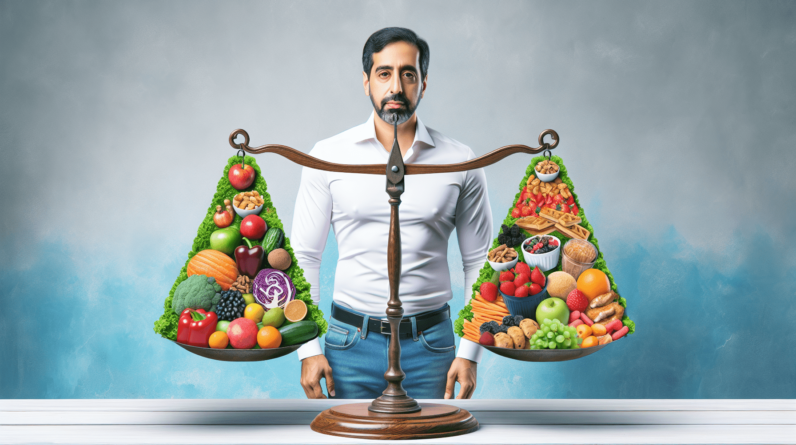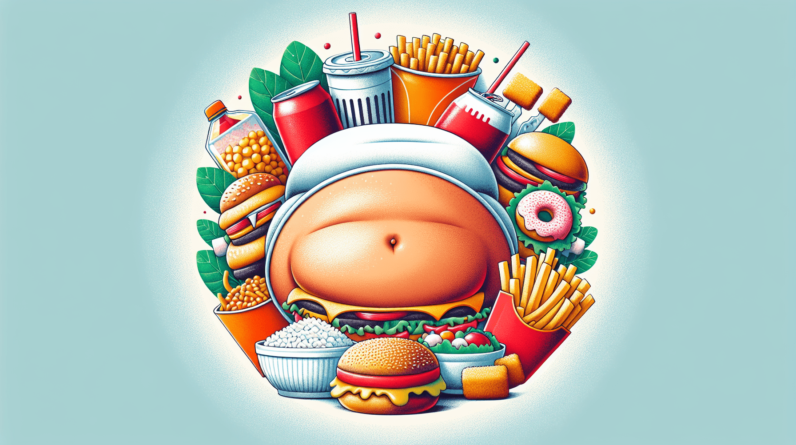
Understanding safe and effective weight loss is crucial for your health and well-being. In the article “How Many Pounds Can You Realistically Lose A Week?”, you’ll learn that setting achievable goals is key to maintaining motivation and seeing sustainable progress. By focusing on realistic expectations, the article delves into the factors that affect weight loss, tips for creating a balanced approach, and expert advice on maintaining a healthy lifestyle. Whether you’re just starting your journey or looking to fine-tune your current strategy, this guide will provide you with practical insights for achieving your weight loss goals safely and effectively. Have you ever wondered how many pounds you can realistically lose in a week? It’s a common question for anyone starting their weight loss journey, but the answer isn’t as straightforward as you might think. Weight loss varies from person to person, depending on multiple factors. However, understanding realistic goals and the science behind weight loss can set you up for long-term success.

How To Lose Weight Safely Each Week
Understanding Realistic Weight Loss
What Does “Realistic” Mean?
Realistic weight loss isn’t about crash diets or extreme measures. Instead, it focuses on sustainable and healthy changes. Realistic weight loss means losing weight in a way that’s safe for your body and can be maintained over time.
Factors Influencing Weight Loss
Several factors play a role in how many pounds you can lose:
- Starting Weight: People with more weight to lose often shed pounds quicker initially.
- Dietary Choices: What you eat matters. Calorie deficits are crucial but quality counts too.
- Exercise Regimen: Physical activity boosts calorie burning.
- Metabolism: Individual metabolic rates can vary widely.
- Age and Gender: Both affect how you lose weight.
- Genetics: Your genetic makeup influences how your body stores and burns fat.
A Safe Rate of Weight Loss
Health experts generally recommend a rate of weight loss of about 1-2 pounds per week. Why this range? Losing weight too fast can lead to muscle loss, nutritional deficiencies, and even a slower metabolism.
| Weight Loss Rate | Description | Notes |
|---|---|---|
| 1-2 pounds per week | Safe and Sustainable | Preserves muscle mass; reduces health risks |
| 3+ pounds per week | Rapid Weight Loss | Often unsustainable; potential health risks |
The Science Behind Weight Loss
Calorie Deficit and Energy Balance
Weight loss fundamentally hinges on achieving a calorie deficit—burning more calories than you consume.
Understanding Calories
Calories measure the energy you get from food and beverages. When you consume fewer calories than your body needs for maintaining its current weight, it starts using stored fat, leading to weight loss.
Calculating Your Caloric Needs
There are several ways to estimate your daily caloric needs. One common method is the Harris-Benedict Equation, which factors in your Basal Metabolic Rate (BMR):
[ BMR \text{ for men} = 88.362 + (13.397 \times \text) + (4.799 \times \text) – (5.677 \times \text) ]
[ BMR \text{ for women} = 447.593 + (9.247 \times \text) + (3.098 \times \text) – (4.330 \times \text) ]
After calculating your BMR, you adjust for activity level:
| Activity Level | Multiplier |
|---|---|
| Sedentary (little/no exercise) | 1.2 |
| Lightly active (light exercise/sports 1-3 days/week) | 1.375 |
| Moderately active (moderate exercise/sports 3-5 days/week) | 1.55 |
| Very active (hard exercise/sports 6-7 days a week) | 1.725 |
| Super active (very hard exercise/job, physical training) | 1.9 |
Creating a Calorie Deficit
To lose one pound of weight, you need to create a calorie deficit of about 3,500 calories. This means if you aim to lose one pound a week, you should aim for a daily calorie deficit of 500 calories.
Expert Tips On Weekly Weight Loss Goals
The Role of Diet in Weight Loss
Healthy Eating Habits
Eating a balanced diet rich in nutrients can make all the difference. Focus on:
- Whole Foods: Fruits, vegetables, lean proteins, and whole grains.
- Portion Control: Monitoring portion sizes to avoid overeating.
- Hydration: Drinking plenty of water can aid in weight loss and overall health.
Avoiding Fad Diets
Fad diets promise rapid results but often fail in the long term. They can also deprive you of essential nutrients and lead to unhealthy relationships with food.
Meal Planning
Successful weight loss often comes from careful meal planning. Prepare meals ahead of time and avoid high-calorie temptations.
The Importance of Exercise
Types of Exercise
Incorporate a mix of the following:
- Cardiovascular Exercise: Burns calories and improves heart health.
- Strength Training: Builds muscle and boosts metabolism.
- Flexibility Exercises: Aids in recovery and prevents injury.
Exercise Frequency
Aim for at least 150 minutes of moderate-intensity or 75 minutes of high-intensity exercise per week, as recommended by health professionals.
Benefits Beyond Weight Loss
Exercise has numerous benefits besides shedding pounds. It improves mood, boosts energy levels, and promotes better sleep.

Monitoring Your Progress
Tracking Your Weight
Weighing yourself regularly can help monitor your progress but shouldn’t be an obsession. Choose a consistent time and method for weighing yourself.
Using Technology
Fitness apps and online tools can help you track your calories, exercise, and weight loss progress. They provide insights and keep you accountable.
Adjusting Your Plan
Weight loss isn’t linear. Plateaus are normal. If you hit a plateau, reassess your calorie intake and exercise routine and make necessary adjustments.
Mental and Emotional Considerations
Staying Motivated
Motivation can wane over time. Set small, manageable goals and celebrate your progress along the way.
Handling Setbacks
Everyone faces setbacks. The important thing is to keep going—get back on track as soon as possible.
Emotional Support
Whether it’s friends, family, or a support group, having emotional support can significantly impact your weight loss journey.
Health Considerations
Consulting a Healthcare Provider
Before starting any weight loss plan, consult a healthcare provider, especially if you have underlying health conditions or take medications.
Potential Health Risks
Extreme weight loss methods can be harmful. Be aware of the potential health risks, such as nutrient deficiencies, muscle loss, and metabolic slowdown.
Maintaining a Balanced Approach
A balanced approach ensures that you’re not just losing weight but also gaining health and well-being.
Understanding Special Considerations
Age Factors
As you age, muscle mass tends to decrease while fat mass increases, affecting your metabolism. Adjust your diet and exercise accordingly.
Hormonal Factors
Hormonal changes, particularly in women, can impact weight loss. Understanding these can help tailor your weight loss strategies.
Specific Diet Considerations
Some individuals may have specific dietary needs or restrictions. Customizing your plan to suit these needs can promote better results.
Long-term Success
Lifestyle Changes
Successful weight loss results from making lifestyle changes rather than short-term fixes. Think of it as a marathon, not a sprint.
Building Healthy Habits
Developing healthy habits one step at a time can create lasting change. Focus on gradual improvements rather than overnight transformations.
Sustaining Weight Loss
Maintaining weight loss is often the hardest part. Continue to follow the healthy habits you developed, and remember that occasional indulgences are okay—balance is key.
Finding Joy in the Process
The journey to weight loss and better health should be enjoyable. Find activities and foods that you love and that support your goals.
Takeaway: Your Realistic Weight Loss Journey
Realistic weight loss isn’t about rapid results; it’s about sustainable, healthy progress. By understanding your body’s needs, creating achievable goals, and fostering a balanced lifestyle, you can embark on a successful weight loss journey. Remember, the best results come from consistency, patience, and dedication. So, take it one step at a time, celebrate each victory, and make your way toward a healthier, happier you.





